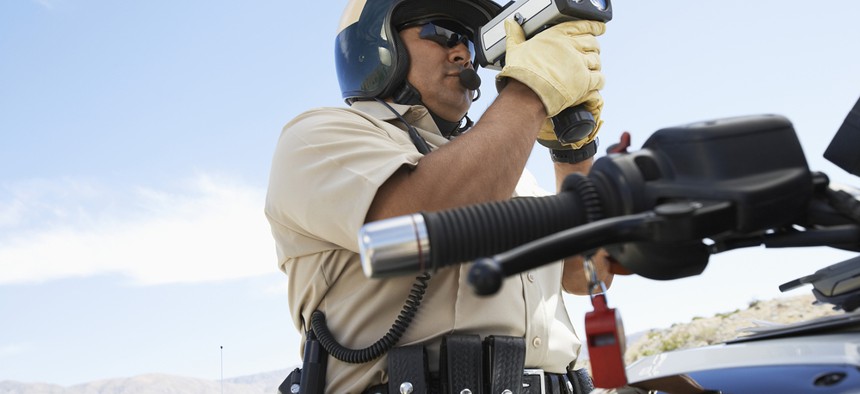Should App Users Be Able to Track Police Officer Locations?

bikeriderlondon / Shutterstock.com

Connecting state and local government leaders
Some law enforcement agencies pressure Google to disable a popular Waze app feature.
LOS ANGELES — The immensely popular traffic navigating app Waze has created a fissure within the law enforcement community with some agencies complaining that it creates a potential safety hazard for officers by allowing users to pinpoint and share the location of police.
However, other police departments say the new level of transparency is a plus, discouraging would-be lawbreakers and giving citizens better access to their public servants.
"I am concerned about the safety of law enforcement officers and the community, and the potential for your Waze product to be misused by those with criminal intent," Los Angeles Police Chief Charlie Beck wrote in a letter to Google, which owns Waze. "I look forward to opening a dialogue with you as to how Google can prevent the future misuse of the Waze app to track law enforcement officers, thereby avoiding any future deaths or injury."

Beck and other officers are specifically pressuring Waze to remove a “police tracker” feature on the app, which alerts users to the presence of patrol cars in their area. Some Waze users employ the tracking feature to help them avoid traffic tickets from police officers waiting to pounce on speeding motorists.
Although there haven’t actually been any documented police deaths or injuries cited in connection with Waze users, Beck and other police officers have pointed to the recent killings of two New York Police Department officers. In online postings before his attack, Ismaaiyl Brinsley made reference to the Waze app, although police have said there’s no evidence he actually used its crowdsourced GPS technology in the attack.
In their formal response, Waze denied that its app could be used to physically track the movements of police officers.
“We think very deeply about safety and security and work in partnership with the NYPD and other police and departments of transportation all over the world,” Waze spokeswoman Julie Mossler wrote in a statement published by the Los Angeles Times. “These relationships keep citizens safe, promote faster emergency response and help alleviate traffic congestion. Police partners support Waze and its features, including reports of police presence, because most users tend to drive more carefully when they believe law enforcement is nearby."
Regardless, the statement from Beck has opened up a dialogue in local law enforcement communities about how technology is affecting the ability of police to carry out their duties. Interestingly, not all police department representatives agree with Beck.
"We want to be seen," San Jose Police Sgt. Heather Randol said in an interview with the San Jose Mercury News, echoing Mossler’s statement that having officers "being highly visible on patrol" is actually a crime deterrent rather than a risk. "Someone is less likely to speed if they know a police officer is around the corner," San Francisco Police spokesman Albie Esparza added in the same story. "It also helps with public safety so people know where there is an officer to get help."
For its part, the National Sheriffs’ Association has not taken a formal stance on the issue but the organization’s deputy executive director, John Thompson, recently announced that the organization would begin training officers on using and monitoring the app.
“While officer safety is paramount and our major concern, we are also concerned this app will have a negative effect on saving lives and with public safety activities,” Thompson said in a statement.




